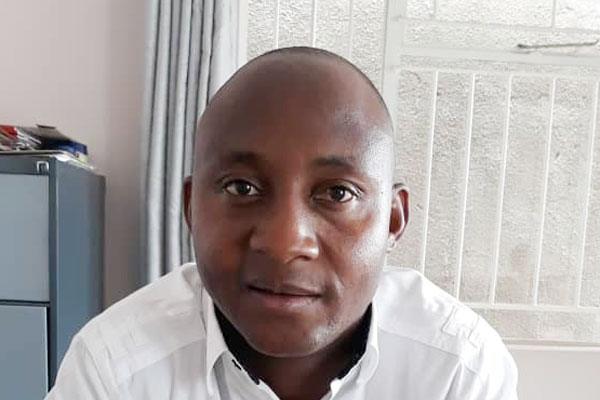
health talk:with Dr Johannes Marisa
People are still dying of Covid-19 in numbers with daily deaths hovering around 6 000, while new infections are now sitting at an average of 300 000 cases daily globally. Covid-19 is still a menace and the world is sitting at a worse position than that in April or May 2020 when there were strict lockdown measures. There are no signs of disease recession globally as the United States, Brazil and India are quaking with untold morbidity and mortality.
With no official vaccine to protect against Covid-19, a large number of people would need to catch the virus, get sick and recover before we can have herd immunity. Challenges are, therefore, serious in highly populated countries like India that has a population of around 1,35 billion people. If all these people are to be infected in order for citizens to be immune to the virus, then Covid-19 is still ages from being over.
European countries like France, the United Kingdom and Spain, among others, seem to be having a second wave of the coronavirus attack as daily deaths are now on the rise with an increasing number of new cases. Covid-19 infection rates are soaring in a variety of countries, several months on from the gruelling lockdowns that characterised the pandemic across the globe. The 1918-20 Spanish flu came in three waves, during which it killed at least 50 million people across the globe, making it more deadly than the First World War which claimed about 20 million lives.
The first wave of the Spanish flu occurred in March 1918. It was highly contagious, but not very virulent with official deaths only similar to the seasonal flu. People celebrated that the virus had disappeared, but in September 1918, the virus emerged in a terrifying second wave, the most severe of the three. The United States lost about 266 000 people just between September and December 2018. Many researchers attributed the increased virulence of the Spanish flu to mutations as influenza viruses are prone to point mutations called antigenic drift that allow them to evade existing immunity from previous infections.
The government, like many other African governments, has further eased restrictions that will see schools being opened for examination classes, intercity buses will now start to ply their routes, business working hours have been extended to 6:30pm while airspace has been opened and the tourism sector is to start rolling. The economy has been on a standstill since the lockdown restrictions were imposed in March and so many sectors of the economy were affected.
Easing of the lockdowns does not mean that Covid-19 has evaporated away. Instead, that should be a signal that at a personal level of your life, you should be very responsible. Any let-up on vigilance on Covid-19 may mean that we may be caught off-guard by another wave. We should never be complacent when we are dealing with pandemics. The infamous September 28, 1918 Philadelphia Liberty Loans Parade saw about 200 000 Americans coming out in the streets to promote the sale of US war bonds. The result was a catastrophe where 10 000 people died from the Spanish flu within the next month. Today, lessons can be drawn from the 1918 pandemic and it is important to follow some basic principles if we are to remain safe as a country. The following measures are reminders today:
lPublic health measures like social distancing should remain in place as long as Covid-19 remains in this world. Opening of the economy is never a substitute for public health measures. The wearing of face masks should remain in place among us in order to minimise the spread of the virus. Handwashing and sanitisation should remain very key lCorrect information dissemination should remain in place so that hotspots can be easily identified. Our data collection systems should be magnified and upgraded so that we do not lose any important data.
- Chamisa under fire over US$120K donation
- Mavhunga puts DeMbare into Chibuku quarterfinals
- Pension funds bet on Cabora Bassa oilfields
- Councils defy govt fire tender directive
Keep Reading
lVigilance especially in schools should be exercised. Preventive measures should be in place while fast diagnosis should be done on suspected cases to curtail the spread of the virus. It will be wise for schools to work closely with medical personnel nearby so that suspected cases are attended to promptly. The Ministry of Education should consider this advice.
lAnyone who falls sick with symptoms pointing to Covid-19 should visit health facilities early. Delaying attention may mean rapid community spread, hence we need early isolation.
It is your duty to keep your health. Be extra alert if you are a diabetic or you have a diabetic at home. Keep your sugar levels well-controlled. It is your responsibility to keep our nation health. Together we can win the war against Covid-19.
lDr Johannes Marisa is a medical practitioner and a public health practitioner who writes in his own capacity. He can be accessed on: [email protected]











